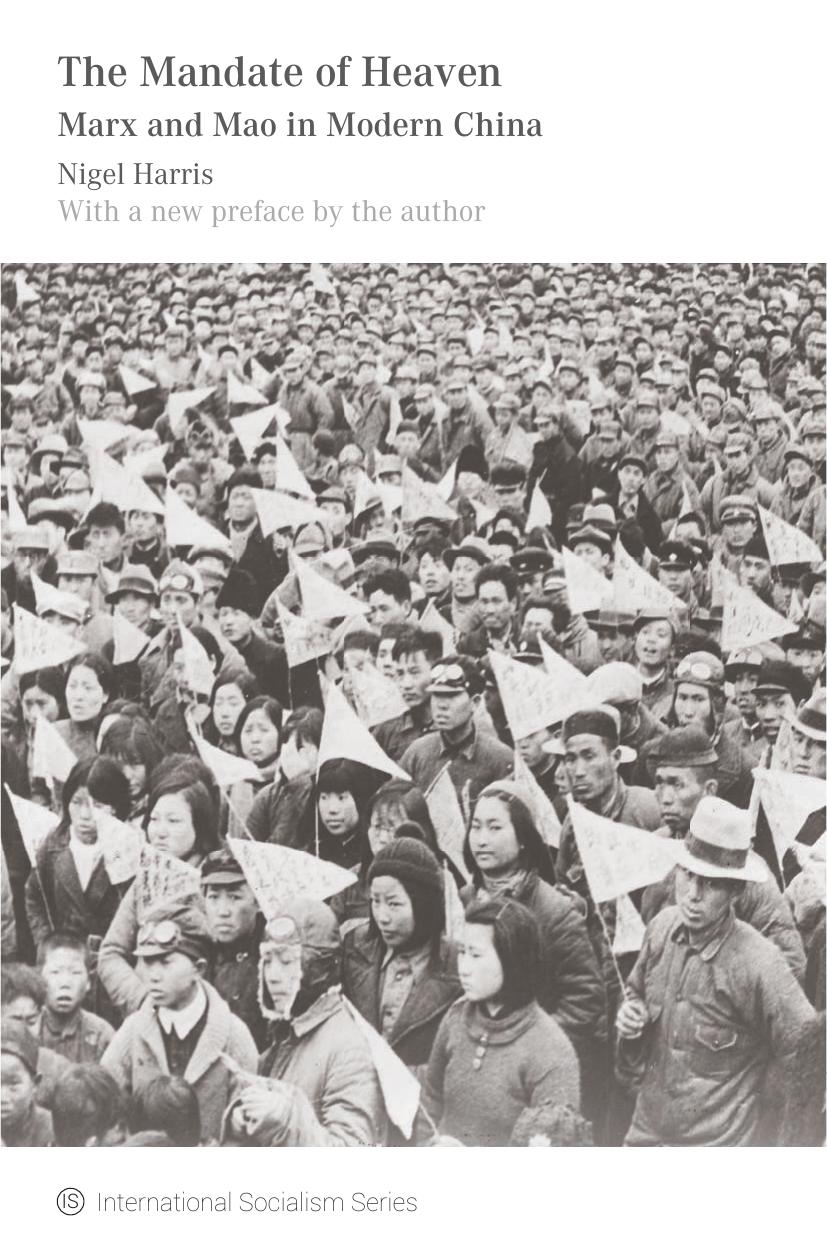Mandate of Heaven: Marx and Mao in Modern China by Nigel Harris

Author:Nigel Harris [Harris, Nigel]
Language: eng
Format: epub, pdf
Tags: Political Ideologies, Communism; Post-Communism & Socialism, Political Economy, Asian, Political Science, World, History
ISBN: 9781608465101
Google: L8aECgAAQBAJ
Publisher: Haymarket Books
Published: 2015-06-22T21:11:37+00:00
(v) Retrospect
What was the effect of the transformation of China’s land? For the average peasant, the ending of the perpetual wars, of gangsterism and banditry, of epidemic, and the worst severities of flood and sporadic famine, were tangible enough benefits. His children might now hope to secure an education, and his family some degree of medical care. The landlord had gone. The cultivator’s crop received a stable return and, with time, he could afford to make improvements to raise output. Industry made available other comforts to rural existence. Yet, important as these improvements were, they did not demonstrate that the Chinese Communist party was the party of the Chinese peasantry.
It seems reasonably clear from the record of the Communist party during the years of the People’s Republic that its leadership felt no particular commitment to the peasantry, no obligation to “represent” it as a class. On the contrary, the government made sporadic efforts to eliminate the peasantry, to convert it into a tightly administered labour force, tied to the land more closely than ever before. The poverty of China, its intensive agriculture, the weakness of the administrative structure made it impossible to persist in this course for very long. The peasants refused to relinquish the products of the soil. Then State policy went into reverse, permitting the restoration of the “rich peasant economy”. When that threatened the rural authority, the State swung back towards stricter administration, and so on, an endless series of zigzags to escape from the imperatives of backwardness and build a powerful national economy.
The drive to increase rural output—which did not rule out a slow and modest improvement in rural living standards—did not flow from any “ideological preference”. On the contrary, the ideological formulations flowed from the efforts to sustain capital accumulation in peculiarly obdurate circumstances. For the majority there was little “emancipation” in this. The “emancipation” was, as Mao put it in the early years of the People’s Republic, of the “productive forces”.
It would appear, then, that the Communist party of China did not embody the class interests of either the working class or the peasantry. Its general political direction appears fully consistent throughout the period from the 1930s to the present, even if its immediate tactical responses vary. That direction of course represented interests that, it could be claimed, all classes shared—national unity, order, stability and the possibility of improving living standards—but no class interests specific to the exploited. On the other hand, the party did not represent the other two major classes—capitalists and landlords. Although it was indulgent towards landlord interests in the 1940s and capitalist interests in the l940s. and 1950s, it ultimately liquidated both as classes. It did so for material reasons, rather than ideological preferences. The landlords represented Kuomintang and warlord power on the land and were therefore a threat to the party in the rural areas (but not in the cities) and would be an obstacle to centralizing authority over the rural population; the capitalists encroached upon the public sector
Download
Mandate of Heaven: Marx and Mao in Modern China by Nigel Harris.pdf
This site does not store any files on its server. We only index and link to content provided by other sites. Please contact the content providers to delete copyright contents if any and email us, we'll remove relevant links or contents immediately.
| Anthropology | Archaeology |
| Philosophy | Politics & Government |
| Social Sciences | Sociology |
| Women's Studies |
The Secret History by Donna Tartt(19066)
The Social Justice Warrior Handbook by Lisa De Pasquale(12190)
Thirteen Reasons Why by Jay Asher(8897)
This Is How You Lose Her by Junot Diaz(6881)
Weapons of Math Destruction by Cathy O'Neil(6270)
Zero to One by Peter Thiel(5793)
Beartown by Fredrik Backman(5744)
The Myth of the Strong Leader by Archie Brown(5505)
The Fire Next Time by James Baldwin(5434)
How Democracies Die by Steven Levitsky & Daniel Ziblatt(5217)
Promise Me, Dad by Joe Biden(5148)
Stone's Rules by Roger Stone(5084)
A Higher Loyalty: Truth, Lies, and Leadership by James Comey(4958)
100 Deadly Skills by Clint Emerson(4922)
Rise and Kill First by Ronen Bergman(4784)
Secrecy World by Jake Bernstein(4746)
The David Icke Guide to the Global Conspiracy (and how to end it) by David Icke(4712)
The Farm by Tom Rob Smith(4505)
The Doomsday Machine by Daniel Ellsberg(4489)
